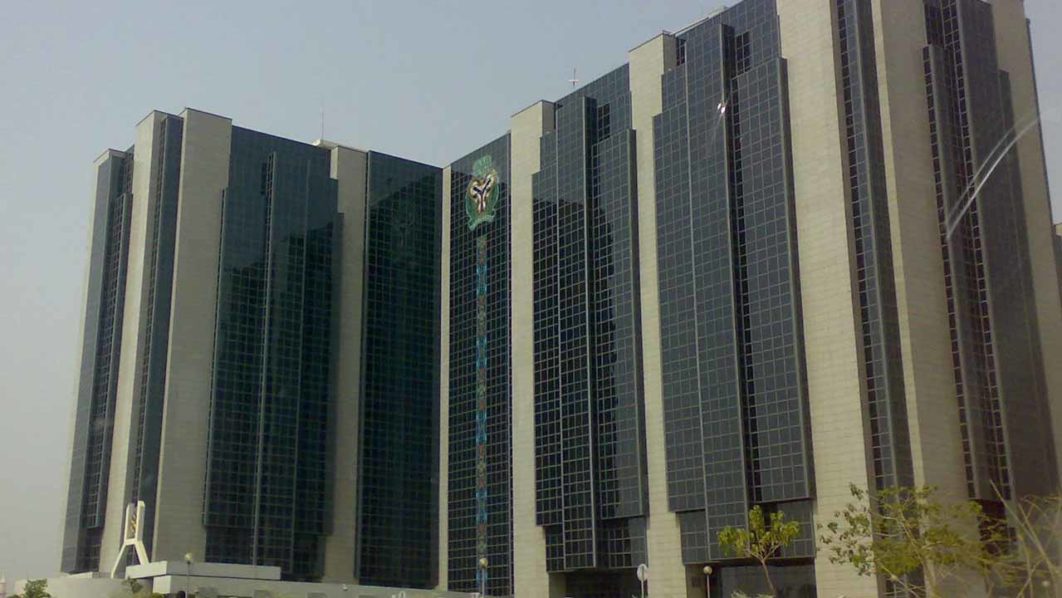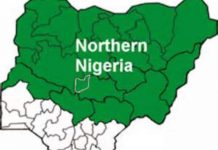Fears expressed on Monday by the Nigeria Governors’ Forum (NGF) that Nigeria is heading for another recession has been allayed by the Central Bank of Nigeria (CBN).
The NGF through its chairman and governor of Zamfara State, Abdulaziz Yari, had warned that Nigeria may enter into another recession next year if urgent measures were not taken to address the current unfavourable economic trends.
In a swift reaction yesterday, the apex bank said that Nigeria is currently experiencing steady but marginal growth just as it is already coming out of high inflation rate.
At the unveiling of the International Monetary Fund (IMF) regional economic outlook for sub-Saharan Africa in Abuja yesterday, CBN deputy governor for Economic Policy Directorate, Joseph Nnana, said: “Right now, we are on the path of achieving our price stability goal of single-digit inflation. Are we going to witness increased inflation or are we sliding back into recession? My answer is no. We are making smooth progress towards growth and by the end of 2019, all things being equal, we are going to likely have between 2.8 and three per cent Gross Domestic Product (GDP) growth rate.”
Nnana, however, said that the GDP growth was not adequate, noting that Nigeria currently has a three per cent GDP real growth rate, with a population growth rate at 3.2 per cent.
According to him, “per capita growth rate is still negative but definitely, we are not going through the era of 2016 when we had a recession. That won’t happen. Hopefully, not under the CBN watch.”
On the state of the economy, Nnana said that for the money market, “our promise to external investors be they portfolio investors or foreign direct investors is that we are going to continue to maintain positive relationship. And the yield in Nigeria is comparative if not more superior to the yield in other emerging market economies.
“Those who want to invest in the last frontier market, the place to be is here,” Nnana stated, adding that “our I&E window is a market for willing seller and willing buyer. The CBN will not intervene in that market to fix prices,” he said.
Nnana recalled that the problem of Nigeria is underemployment because majority of Nigerians are employed one way or another but they are functioning below capacity. They are engaged in the informal sector which is not performing optimally, he said.
“We also have a huge infrastructure deficit. Infrastructure is the major constraint to economic development and growth. This has to be repaired,” he added.
In the IMF outlook, the Bretton Woods’ institution said that current policies growth was hovering around two-and-half per cent.
Nigeria’s economy is recovering but the challenges are there, the IMF said, adding that the growth rate was 1.9 per cent in 2018; up from 0.8 per cent in 2017, while per capital growth remains negative. The IMF also said that Nigeria’s non-oil revenue mobilisation (3.4 per cent of GDP) is still one of the lowest in the world.
As a remedy, the IMF said that immediate actions were needed to realise Nigeria’s growth potential, revenue-based fiscal consolidation to create space for higher capital and priority spending while improving spending efficiency.
It advised Nigeria to maintain a tight monetary policy while adopting a unified market-determined exchange rate and strengthening the banking sector resilience.
“Addressing structural challenges to boost the diversification business environment, governance, power sector reform, public investment efficiency, health and education, financial inclusion, gender equality, structural reforms to boost diversification are also critical,” IMF stated.
The permanent secretary in the Federal Ministry of Finance, Mohammed Dikwa who represented the minister of finance said that although Nigeria’s growth is marginal, it would be sustained.
He said that the government would continue to put more efforts to ensure that the right things were done to strengthen the economy.
Dikwa said that 30 per cent of the revenue that comes into the Consolidated Account was being spent on the implementation of the budget.
The permanent secretary said that the government was working hard to lift Nigerians out of poverty, create jobs and increase financial releases for infrastructural funding while expanding tax levies, with focus on the search for alternative sources of revenue.
As part of efforts to ensure human capital development, Dikwa said that the government was leveraging on Information Communication Technology (ICT) to build capacity and as it had resolved to inject more funds into the productive sector.
Meanwhile, the CBN has said that it would sanction Deposit Money Banks (DMBs) and financial institutions that reject worn out notes or dispense mutilated notes and counterfeit currencies.
The apex bank called for an increase in private companies participating in currency management value chain to enhance its clean note policy.
CBN governor, Mr. Godwin Emefiele, who spoke yesterday in Lagos at the unveiling of the bank’s “Clean Notes Policy and Banknotes Fitness Guidelines”, declared that bank notes remain important for payments and settlement of commercial transactions in Nigeria, which accounts for why the organisation takes currency wellbeing very important.
Emefiele, who was represented by the CBN deputy governor for Operations, Mr. Folashodun Shonubi, said that “it is worth noting that the bank has the responsibility for preserving the integrity of the Naira and sustaining public confidence in the national currency as enshrined in Section 2 of the CBN Act 2007.
To attain these objectives, the bank strives to ensure an optimal supply of clean and quality banknotes in a balanced denominational mix to meet public demand, while also maintaining a balanced currency structure that is both efficient and cost-effective, he said.
Emefiele said: “The responsibility for clean notes in circulation is not exclusively that of the Central Bank, rather collaborative efforts among CBN, banknote suppliers, deposit money banks, manufacturers of currency management equipment, currency transportation and processing companies, security agencies, and the general public.
“I commend the existing collaboration between the CBN and the stakeholders in the currency management value chain, and wish to stress that this should be deepened and strengthened for the overall good of the industry.
“Currency management is vital to our daily lives because despite the improvements in the electronic payment system, banknotes remain predominant for payment and settlement of commercial transactions in Nigeria,” the CBN boss said.
The effective use of these documents by relevant stakeholders would ensure that banknotes in circulation are clean and of high quality. Characteristics that are key to sustaining public confidence in the national currency, he said.
Emefiele continued: “Permit me to mention some key policy measures being pursued by the bank towards promoting effective and efficient currency management in Nigeria. On encouraging more private participation, the bank is encouraging more companies in currency management.
“The bank has registered eight companies to carry out cash-in-transit and two cash processing companies to operate in Nigeria. Deposit money banks are expected to patronise only these registered companies for Cash-in-Transit (CIT) and sorting services.
“It is expected, therefore, that more private sector participation in the currency management value chain would further strengthen the efforts toward ensuring the availability of clean banknotes.”
“I wish to use this opportunity to inform the industry that the CBN, as part of its effort towards devolving the retail cash management to the private sector has approved the revised guidelines for registration of CIT/CPCs. These guidelines provide for the operation of CITs and Cash Processing Companies (CPCs) at both national and regional levels. It is hoped that this would encourage unregistered companies to come under the regulatory purview of the CBN and ensure a nationwide coverage of these services,” he said.
Emefiele said that this would encourage banks to reduce the processing charges for DMBs’ deposit of lower denomination banknotes (N5 – N50) to encourage the return of unsorted banknotes to the CBN for processing.
The apex bank also intends to embark on a project that would enable mop-up of the over-circulated and mutilated banknotes from circulation. Furthermore, the CBN would continue to embark on sustainable institutional reforms and enact policies that will promote efficient currency management in Nigeria, he said.
On the side-lines, Shonubi said: “The first one has to be pride of Nigerians because when people go around, they look at your currency that represents the nation. And most of the time we show them a currency that is less than fit, it must tell on us in some shape and manner. The whole industry, not just the CBN, must be committed to changing that image.”
“The document unveiled today explained how it would be done, what everybody’s role and responsibilities are and how we can make it a reality. The banks who actually handle the notes should ensure the notes they have are always fit for purpose. We also feel it would affect commerce because people would be more inclined to spend when they have new notes in their hands and merchants more willing to accept. So we believe it would definitely help the economy and how money moves around.”
On her part, the director of Currency Operations Mrs. Priscillia Ejeme, said: “As at the end of March 2019, the CIC was 8.8 billion pieces valued N2.15 trillion. However, despite this huge volume of CIC and its attendant challenges that we are experiencing, CBN remains committed to ensuring we have fit notes in circulation.”
Also alluding to the incentives for banks to bring in bad notes, she said: “We would give a timeframe by which DMBs would need to bring all mutilated bank notes to us for replacements and we would do it in a way that they would be encouraged to bring them forward.”
She also added that Automated Teller Machines (ATMs) are expected to have only mint and close to mints dispensed from which the guideline stipulates as level 1 and Level 2. While the counter banks can issue out Level 1 to Level 5 categories of notes. But Levels 6 to 9 should by rejected from collection from DMBs.
On his part, the CBN director of Financial Services Provider, Dipo Fatokun, said: “The clean note policy document provides the uniform standard of only clean and fit bank notes in Nigeria.”







